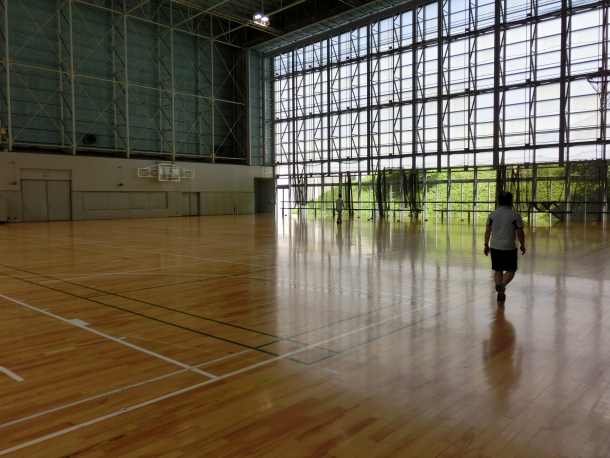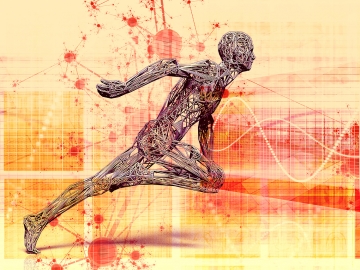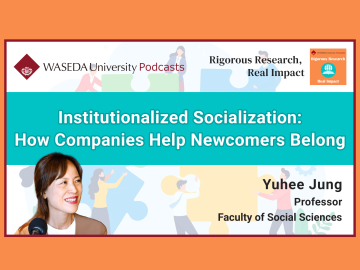A recent study led by Masashi Miyashita, associate professor of the Faculty of Sport Sciences, and Lotte Co., Ltd confirmed that chewing gum while walking could measurably affect physical and physiological functions, and possibly increase energy expenditure.

A participant chewing gum while walking in the experimental trial
The study enrolled nearly 50 male and female participants of age 21 to 69, and their heart rates, walking distances, walking speeds, steps, and energy expenditures were measured as they walked at natural pace for 15 minutes. In the experimental trial, the participants chewed gum while walking, and in the control trial, they ingested powder which the ingredient is the same as the chewing gum without the gum base. As a result, the researchers found that the heart rate increased among participants in the experimental trial, and this effect was more apparent among middle-aged and elderly male participants, in whom the walking distance, heart rate, and energy expenditure (estimated from walking speed) increased.
Though the exact mechanism of how chewing gum while walking increases physical functions, Professor Miyashita believes that cardiac-locomotor synchronization (CLS), a mechanism which synchronizes the cardiac rhythm and locomotor rhythm, may explain why. “The physiological significance of CLS is believed to arise from an increase in the maximum blood flow to active muscles, reduced cardiac afterload, and increased systole volume accompanying increased venous return. Additionally, CLS is more likely to occur in the elderly. It can be concluded that gum chewing increased the heart rate, and CLS possibly led to increases in the physical functions of walking distance and steps.”
In a super-aging society, promoting good health among the elderly is becoming essential, and chewing gum while walking may be a physical activity of choice in which anyone could take up easily. Also, such activity may be considered effective to prevent and treat obesity, a global pandemic which could trigger the onset of chronic diseases such as cardiovascular diseases and metabolic diseases. The researchers plan to investigate energy expenditure that occurs during this physical activity further in detail.
This study was supported by a research grant from Lotte Co., Ltd, and was published in the Journal of Physical Therapy Science on April 20.
Reference
- Title: The effects of gum chewing while walking on physical and physiological functions
- Published in Journal of Physical Therapy Science. 2018; 30 (4) 625-629.
- Authors: Yuka Hamada, Takuma Yanaoka, Kyoko Kashiwabara, Kuran Kurata, Ryo Yamamoto, Susumu Kanno, Tomonori Ando, Masashi Miyashita
- DOI: https://doi.org/10.1589/jpts.30.625








